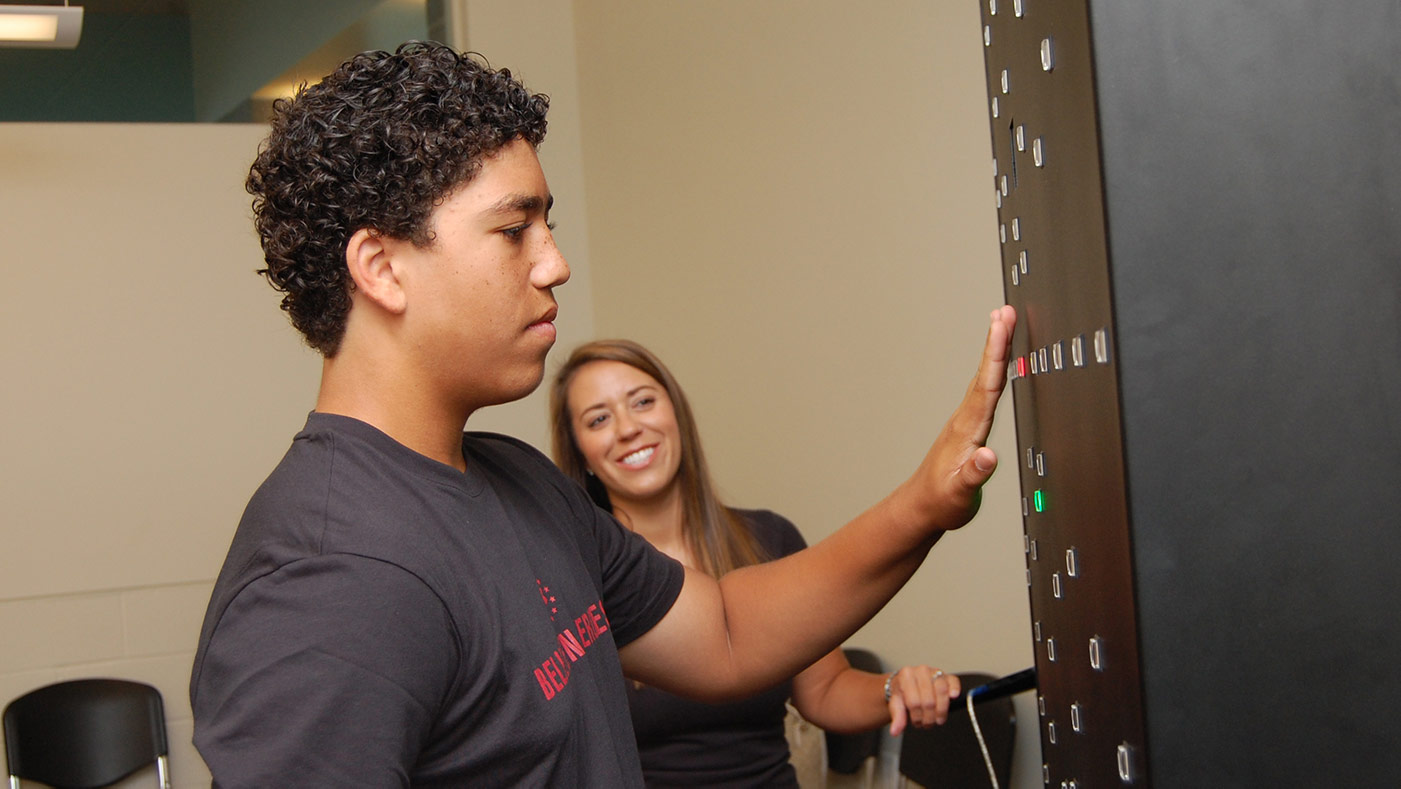
What do you think of when you read the word, “concussion”?
Did the words “headache”, “confusion”, or “athlete” come to mind?
Those answers are a good place to start, but they’re far from the whole picture. Concussions are more than a bump on the head: they can turn life completely upside down for kids and families.
As a Certified Brain Injury Specialist and Occupational Therapist at ChildServe’s Concussion Clinic, I help turn the world right side up for families, help kids safely get back to the activities they love, and teach people about concussion rehabilitation.
The reality of how concussions impact kids and teens is intimidating to think about, but every parent, teacher, and coach should be well-versed in these facts so that we can do our best to protect kids from long-term injury.
- Concussions can happen to anyone at any time. While sports injuries make up a big portion of concussion injuries, around half of the kids and teens we treat at ChildServe’s concussion clinic were simply involved in an accident or fall, far away from any athletic field or court.
- Athletes that have already received a concussion are 3 times more likely to experience a second one.
- If your child does receive a concussion while still recovering from a previous one, it could create a very serious, life-threatening situation known as “second impact syndrome.” This is why it’s very important to make sure your child takes the time to recover fully before returning to play or school.
- Concussion symptoms go far beyond headaches or confusion. A child with a concussion diagnosis might experience poor balance, sensitivity to light, difficulty concentrating, drowsiness, sadness, irritability, visual problems, and more.
Can you imagine trying to get through your normal routine when you have even a few of the symptoms above? Going to band or volleyball practice, or even taking notes in class or talking to friends would be exhausting.
Even so, kids often try to push through their symptoms to join in their normal activities. But jumping back into favorite activities too soon after a concussion isn’t just uncomfortable. It’s dangerous and could make the recovery process take even longer. Our multidisciplinary Concussion Clinic team creates return-to-play and return-to-school plans to make sure your child’s brain and body get the rest time needed to have the best recovery possible.
How Baseline Screenings Help
Concussion baseline screenings take place while a child or teen is healthy – when their brain is functioning at its very best. It’s similar to getting a physical before sports season starts, or having a yearly check-up with your doctor.
Baseline screenings give our team a snapshot of everything that could be impacted by a concussion. For example, screenings test how quickly your child’s brain normally reacts to and processes the environment. If your child does get a concussion, we use these measurements to see which areas were the most impacted. That helps us design a personalized, more impactful recovery plan. Most importantly: concussion baseline screenings help us make sure that your child’s brain is fully recovered before putting him or her back in the classroom, on the athletic field or playground, or behind the wheel.
Finding Answers to Keep Kids Safe
We do many kinds of interesting activities and tests at baseline screenings. In the event of a concussion, each area can be retested and monitored throughout the child’s recovery to help us figure out the answers to questions like the ones below, and more:
- Vision: Are their eyes going to be able to look quickly at the teacher and back down at their paper? Will they be able to read and write without triggering other symptoms?
- Balance: Can they go up the stairs safely, turn to walk in between people, or will they lose their balance at school? Can they safely return to fun activities like biking or skateboarding?
- Executive Function: Are they going to be able to process and remember what they hear at school? Will they remember where to meet you for a ride or which order their classes are in?
- Reaction time and processing speed: Are they ready for sports or driving? Can they catch or avoid the ball in time? Avoid another player? Will they process someone hitting the breaks in front of them in time to stop?
- Neuro-cognitive tests: How would they handle the pressure of a test at school? Would they benefit from more time to rest before getting them back into full school work?
If you want to take the next step toward being prepared to help your child recover from a concussion, set up your baseline screening by calling the ChildServe Concussion Clinic at (515)-251-5555.
About
ChildServe improves the health and well-being of nearly 5,800 children each year through specialized clinical, home, and community-based programs and services. We serve children with developmental delays, disabilities, injuries, and other special healthcare needs.
Follow Us
Contact Us
Johnston | 515-727-8750
Ames | 515-232-7220
Des Moines | 515-280-5332
Iowa City | 319-351-5437
Cedar Rapids | 319-777-7450
Links
